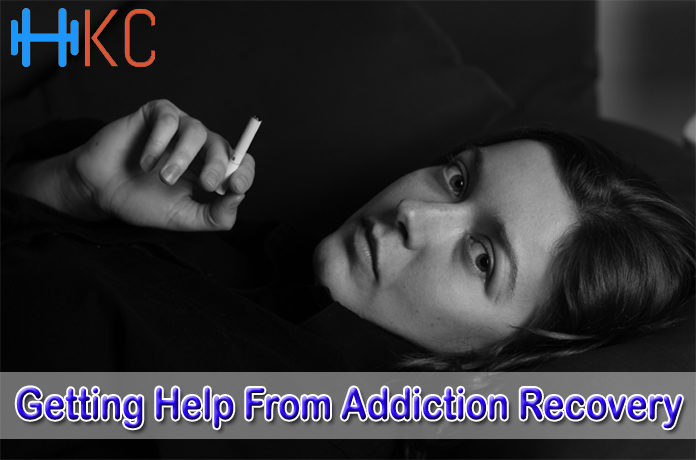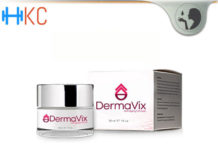If you’re reading this and you’re currently addicted to a drug, congratulations because you’re taking the first step towards recovery. If you yourself are not a drug addict, and you’re doing research for a loved one, congratulations as well because you might just save a life.
Drug addiction is a serious matter and should be handled as such. In a world where drug use and alcohol consumption is seen as an act of partying or simply a recreational activity, we’ve been desensitized to the severity of addiction. Sometimes, signs of addiction are harder to recognize than we might think. When emotions are tied into the major decision making of becoming a whistle blower, asking for help, or holding an intervention, our judgment might seem foggy. Justifying our behavior is common in the early stages. “I’m only having these drinks because I’ve been so stressed out lately.” “I’m only drinking so early in the morning do that I don’t have a hangover from last night”. “It’s just one more hit, then I’ll stop”. Addiction is a disease and that’s exactly why the only way to get better is with the help of the top professionals in your area.
Nexus Recovery is a boutique treatment facility for addictions including:
- Alcoholism
- Dual diagnosis
- Opiate addiction
- Cocaine addiction
- Methamphetamine
- Benzodiazepines
- Marijuana addiction
The selection process is strict because Nexus wants to make sure that every patient gets the care that is best for him or her, his or her background and current situation. Nexus recovery offers four different treatment programs including partial hospitalization, outpatient, intensive outpatient, and aftercare. Each of the programs offers specific treatments and therapies that can be adjusted on an individual basis.
The admission process is multi-faceted being that there are a few steps to making sure the facility is the right spot for you. Nexus will assemble a team of knowledgeable and compassionate recovery advisors who are trained to walk you through the admissions process.
Speaking with a trusted recovery advisor
The first step in the admissions process is speaking with a recovery advisor. The consultation is absolutely free and will be held over the phone. The goal of the conversation is to:
- Learn more about you or your loved one to determine what level of care is appropriate
- Answer specific questions and address any concerns you may have
- Obtain health insurance information to see what potion of treatment may be covered
- Provide any additional support, resources, or referrals you may need
Interview
The second step in the admissions process is the interview. Nexus wants to makes sure that each potential client is invested in the recovery process and that the program is the best fit for his or her individual needs. If the interviewer decides that the client would be better suited at a different facility, Nexus Recovery will refer that person to the facility they think will best help them pave the road to recovery. Nexus vows to always put the patient first and be completely honest when it comes to if their facility is a good fit.
Schedule a tour
After your interview, you can tour the unique facilities that Nexus has to offer. If you choose Nexus, you’re going to be spending a lot of your time with the staff and within the walls of the building so you want to make sure you feel completely comfortable there.
Developing a treatment plan in Nexus Recovery
If there is a mutual decision that appoints Nexus Recovery as the best fit, a member of the treatment team will facilitate an in-depth evaluation to determine a treatment plan. Nexus has a very low client to clinician ratio, so the care is extremely individualized and can be adapted on a personal basis dependent upon progress and feedback. With the goal to give clients the best chance of sustained sobriety, Nexus is willing to take their care to the next level.
What Is A Personal Action Plan And Why Is It Necessary?
- Recovery is not a singular event and doesn’t cease once sobriety is obtained. Rather it is an ongoing process, one that requires that you change many aspects of your life, including how you think, how you react in certain situations, and how you cope with the emotions created by these aspects of your life. It requires consistent upkeep and mindfulness, and is best approached in a thoughtful and methodical manner. It is this consistency and framework that can provide you strength at the times when things become overwhelming or uncertain.
- A personal action plan is one of the first things you need to do when you get outside of treatment. It is a unique set of guidelines, goals, methods, notes, and processes that you develop to flourish during recovery. It is something that integrates the knowledge and the skills you learned within treatment with the insights that you’ve learned about yourself both during and after your rehabilitation. It keeps you hopeful, mindful, focused, and accountable. It is a framework that provides you strength in the moments when your resolve falters.
- Be careful not to rush into things or to move too fast. It is normal to be anxious about wanting to change your life and make things different. However, doing this too fast can be detrimental to your recovery. Take the time to get to know yourself by learning how you react and feel in specific circumstances, when interacting with people, or the root cause of your emotions. Now that you’re sober, a lot of this will be new to you. Don’t expect things to be perfect and work perfectly the first time. As you learn more about yourself, you can gradually tweak things to create a plan that is more suited to your unique needs and lifestyle.
- To be successful you may yet have to change numerous behaviors. Even though you made some big changes during your treatment, and may have already weeded out harmful influences, there may be certain things that you overlooked or didn’t anticipate. As you move forward in your recovery, it is important that you are honest with yourself so that you can adapt and continue to create a lifestyle that is conducive to your health and recovery.
- It might be difficult to turn what you know into practice. Even though you learned about positive and healing methods within your treatment or therapy, it is another thing altogether to implement them. It can be daunting to devise a way to do these things on a regular basis, especially when you’re trying to contend with a life that has changed so drastically. Creating a personal action plan will help you to solidify the goals, activities, methods, and thought processes that are key to preserving the two largest goals of treatment: recovery and relapse prevention.
- This is certainly a deeply personal exercise, one which requires you to boost the comfort and introspective. In preparation, it can be useful to ensure that you have got a private time and place schedule for yourself. If you need the assistance of others while you’re working on it, you can reach out to your cherished ones for help.
- This can be useful to have any notes or materials that you collected on your treatment on hands in case you have to have a refresher. It may also be useful to spend some time relaxing or reflecting before you begin, as you will reap the very best benefit if you believe a positive state of mind. Being attentive to music, taking a walk, or any other enjoyable hobby might reduce you into this reflecting state.























